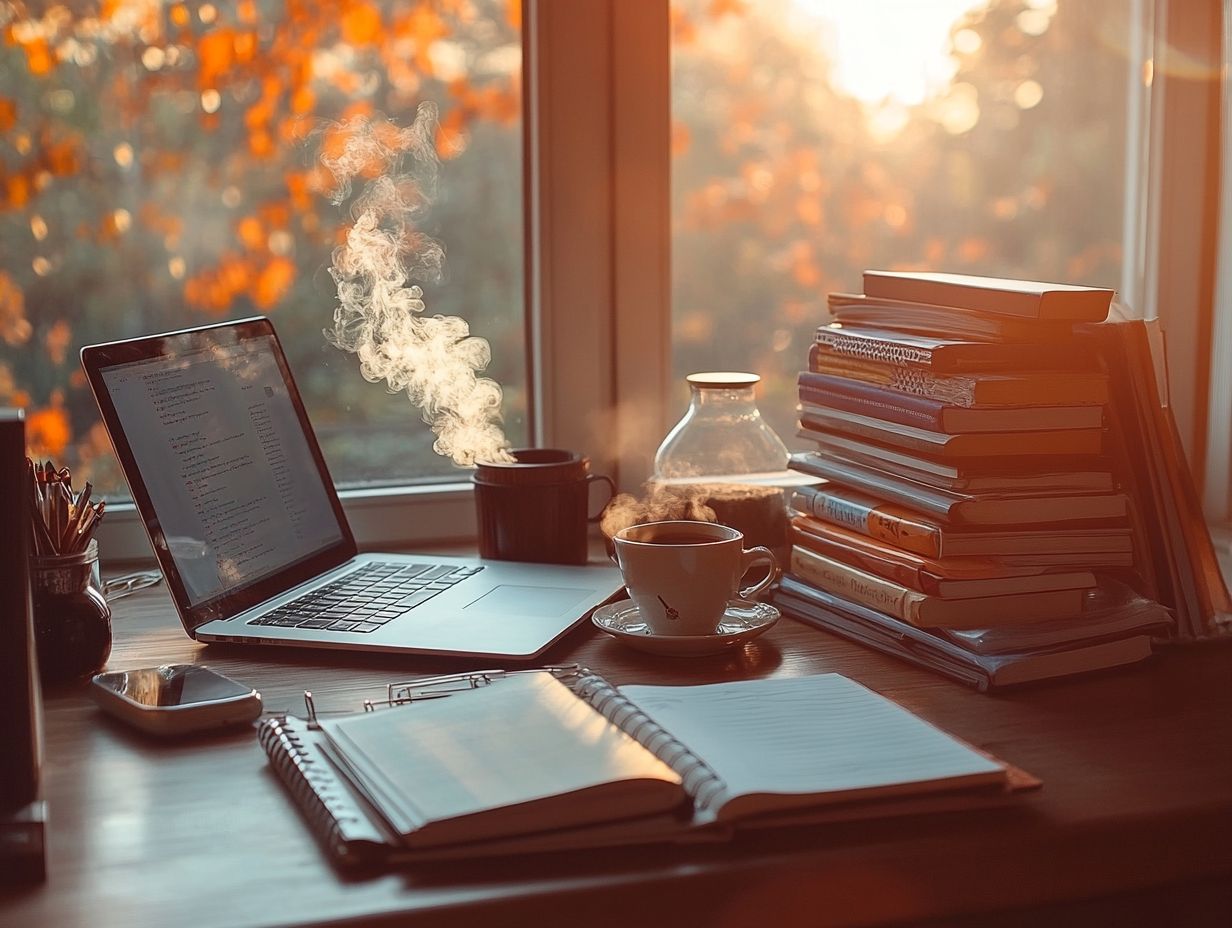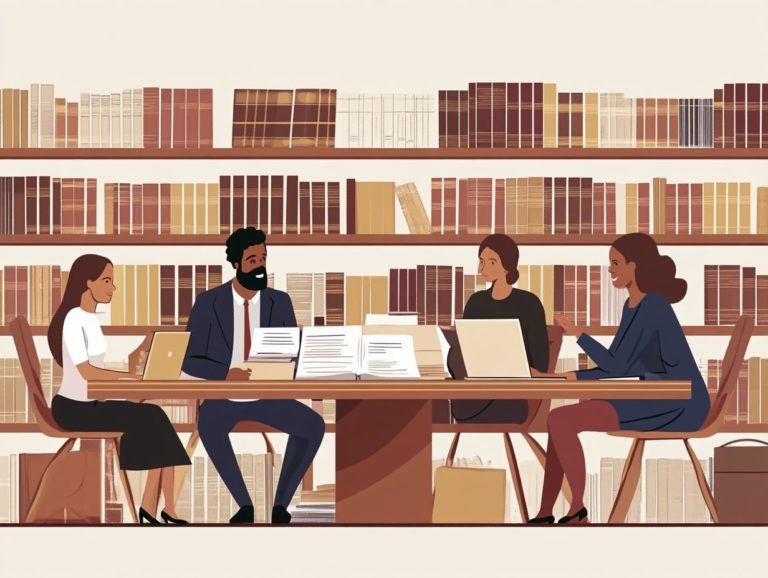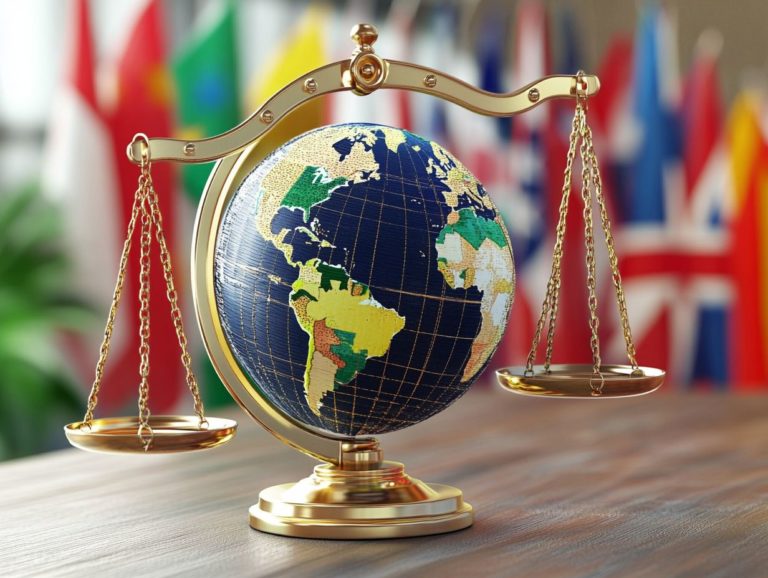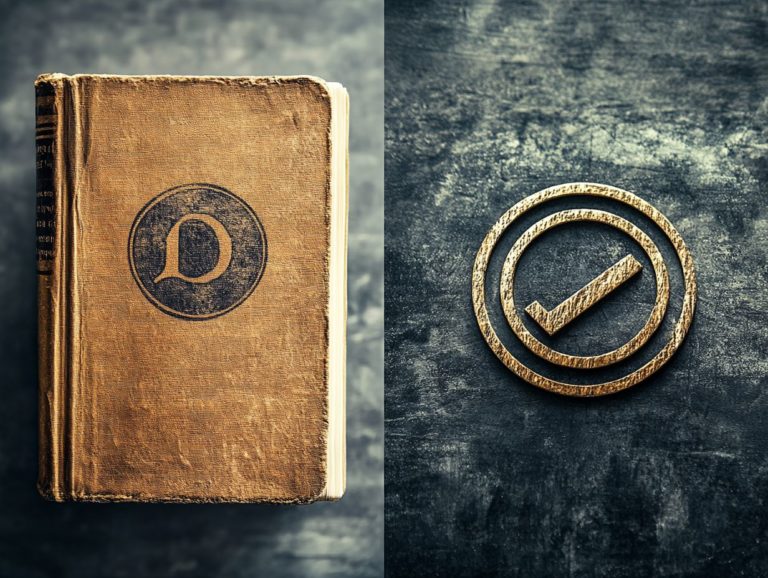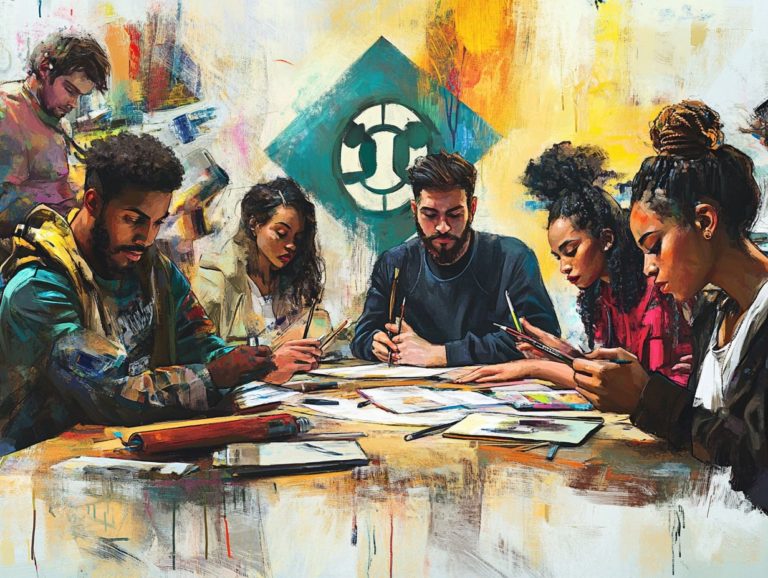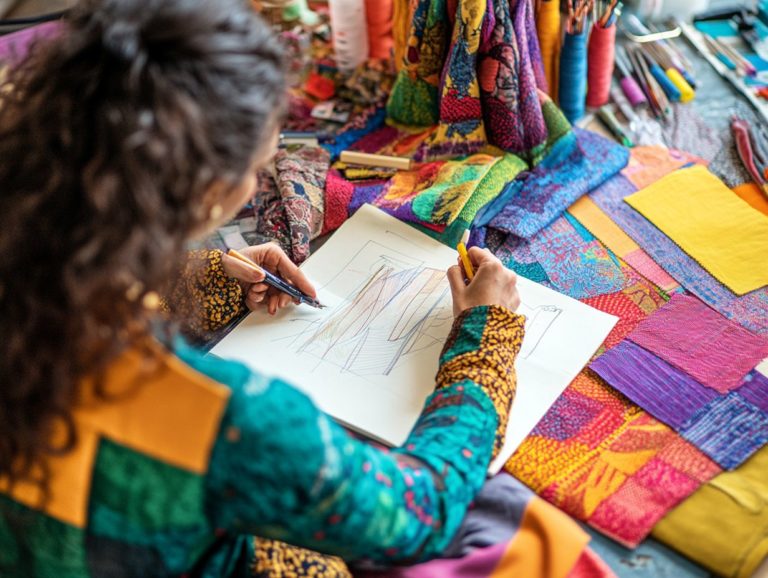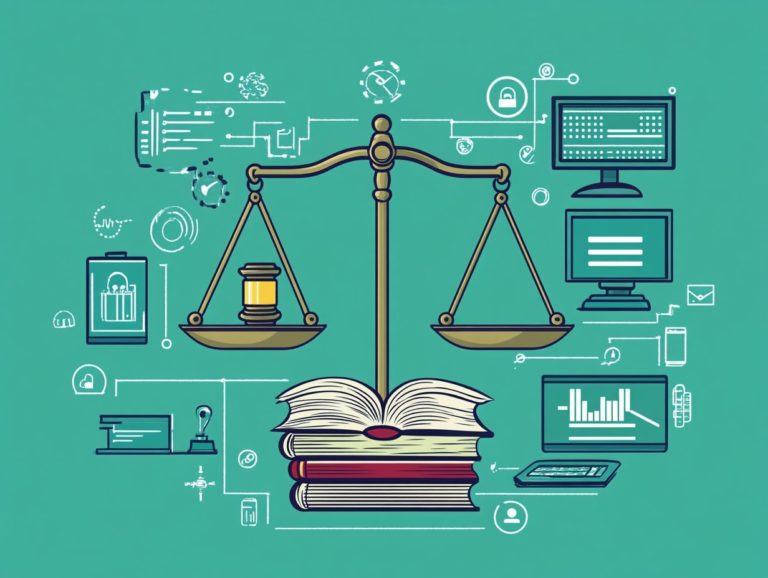5 Essential Copyright Tips for New Authors
Navigating the world of copyright can feel overwhelming, especially for new authors. However, understanding your rights is essential for safeguarding your creative work.
This article presents five essential copyright tips designed to empower you to take control of your intellectual property. It covers everything you need to know, from the fundamentals of copyright law to the process of registering your work.
Whether you re an aspiring novelist or an emerging artist, these insights will guide you through copyright challenges and help secure your artistic future.
Contents
- Key Takeaways:
- 1. Understand the Basics of Copyright Law
- 2. Register Your Work with the Copyright Office
- 3. Include a Copyright Notice on Your Work
- 4. Consider Using Creative Commons Licenses
- 5. Keep Records of Your Copyrighted Work
- What Is Copyright and Why Is It Important for Authors?
- Frequently Asked Questions
- Can all original written works be protected under copyright law?
- What rights does copyright give to the author?
- What is the duration of copyright protection for written works?
- Do I have to register my work with the copyright office?
- Can copyright be transferred or sold?
- What should I do if I suspect someone has infringed upon my copyrighted work?
Key Takeaways:
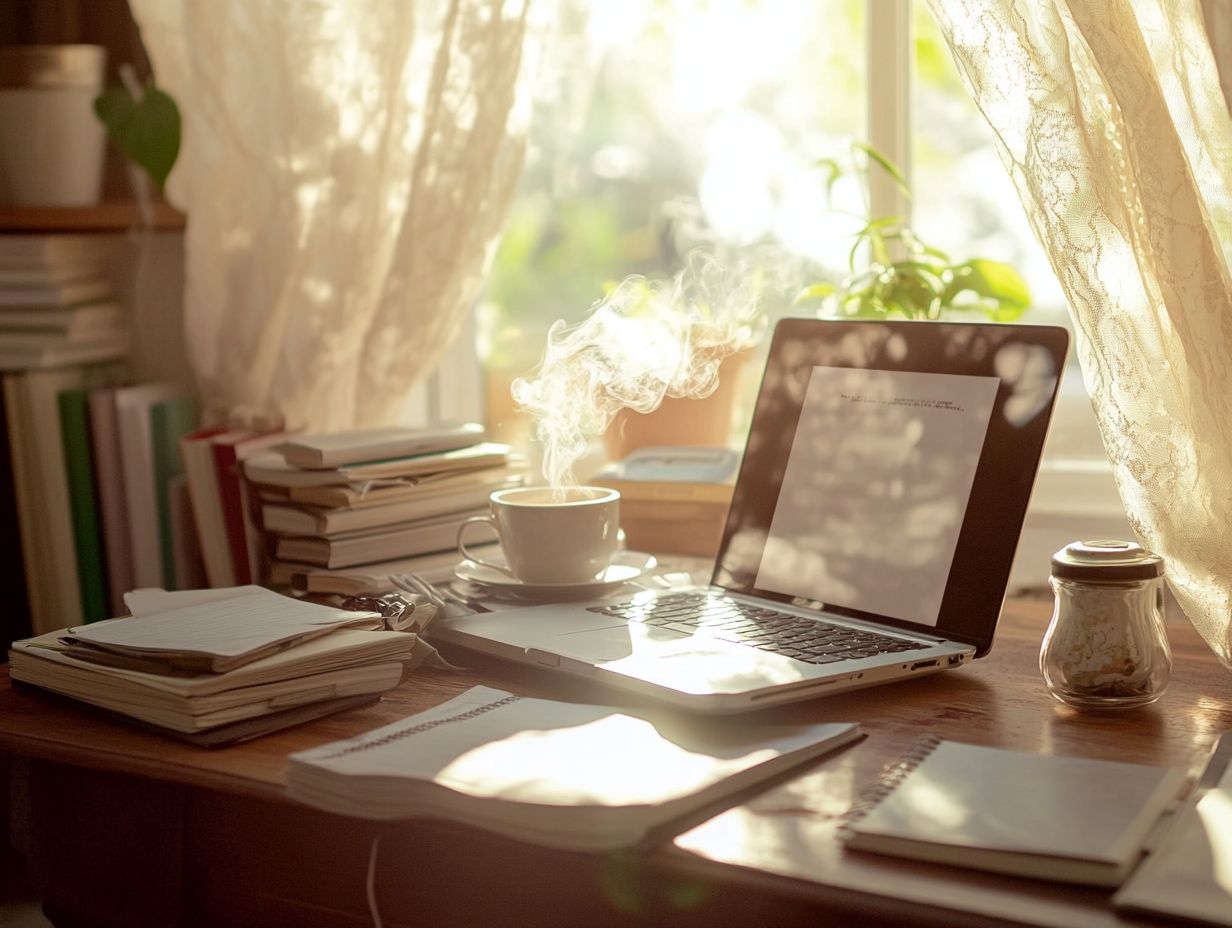
Understand the basics of copyright law to protect your work and ensure you are not infringing on others’ rights. Register your work with the copyright office to establish legal ownership and gain added protection in case of infringement. Include a copyright notice on your work to inform others of your ownership and discourage unauthorized use.
1. Understand the Basics of Copyright Law
Understanding copyright law is crucial for creators. It provides the legal foundation that protects your rights over your creative works.
This protection ensures that your artistic and literary expressions remain safeguarded against unauthorized use. Copyright gives you exclusive rights to your creations, like books, paintings, or music.
This protection lasts for your lifetime plus 70 years, allowing your family to benefit too. The types of works protected under copyright include original pieces of authorship such as poems, sculptures, and software.
For instance, when a musician publishes a song, they retain the copyright. Any unauthorized duplication could lead to infringement claims. This underscores the importance of grasping these principles for anyone navigating the creative landscape.
2. Register Your Work with the Copyright Office
Registering your work with the U.S. Copyright Office is essential for establishing your copyright ownership. It not only offers legal protection but also opens the door to benefits like eligibility for infringement actions and statutory damages.
Let s dive into the registration process! You first need to determine your eligibility, which generally includes any original work of authorship think literature, music, art, and photography. You ll need essential documentation:
- A completed application form,
- A non-refundable filing fee,
- A copy of the work you re registering.
This process is critical in industries like self-publishing. It allows you to protect your creative investments and gain a competitive edge.
By securing copyright, you shield your work from unauthorized use and enhance your potential for licensing opportunities and revenue generation. In today s fast-paced digital world, protecting your work is absolutely crucial!
3. Include a Copyright Notice on Your Work
Including a copyright notice on your work is not just a formality; it’s a crucial step in asserting your rights. It serves as a reminder of your copyright protection, effectively deterring unauthorized use while establishing your ownership over derivative works creations based on your original work, like adaptations or sequels.
This simple statement typically features the symbol, the year of first publication, and your name as the copyright holder. Together, these elements communicate the legal rights that are yours as a creator.
The legal significance of this notice cannot be overstated; it publicly declares your ownership and is often essential for enforcing your rights in case of a dispute.
For instance, placing a copyright notice at the beginning of your book, in the footer of your website, or on the back cover of your CD can effectively shield your work. Having this notice strengthens your position in copyright cases and provides proof that you have clearly defined your work’s status for potential infringers.
4. Consider Using Creative Commons Licenses
Creative Commons licenses let you share your work while retaining control. You can choose a license that fits your goals, whether you’re an educator promoting remixing for teaching or a photographer protecting your images.
These licenses come in various flavors, from the most permissive options that allow others to use, share, and adapt your works provided they give proper credit to more restrictive alternatives that limit commercial use or modifications.
Each type serves a distinct purpose, enabling you to align your sharing practices with your values and distribution goals.
Choosing the right Creative Commons license helps you find the right balance between sharing your work and protecting your intellectual property in this digital landscape.
5. Keep Records of Your Copyrighted Work
Keep detailed records of your work. This not only proves ownership in disputes but also documents your creative journey.
Maintaining various types of documentation can significantly enhance your ability to navigate copyright law complexities. This includes not just your final drafts but earlier versions that showcase the evolution of your ideas, notes that unveil your thought processes, and correspondence with agents, publishers, or fellow creators that illuminate your intentions and collaborations.
Each piece of documentation can serve as vital evidence in infringement actions should disputes arise. By diligently archiving these materials, you not only strengthen your legal standing but also gain a richer understanding of your own creative path.
What Is Copyright and Why Is It Important for Authors?
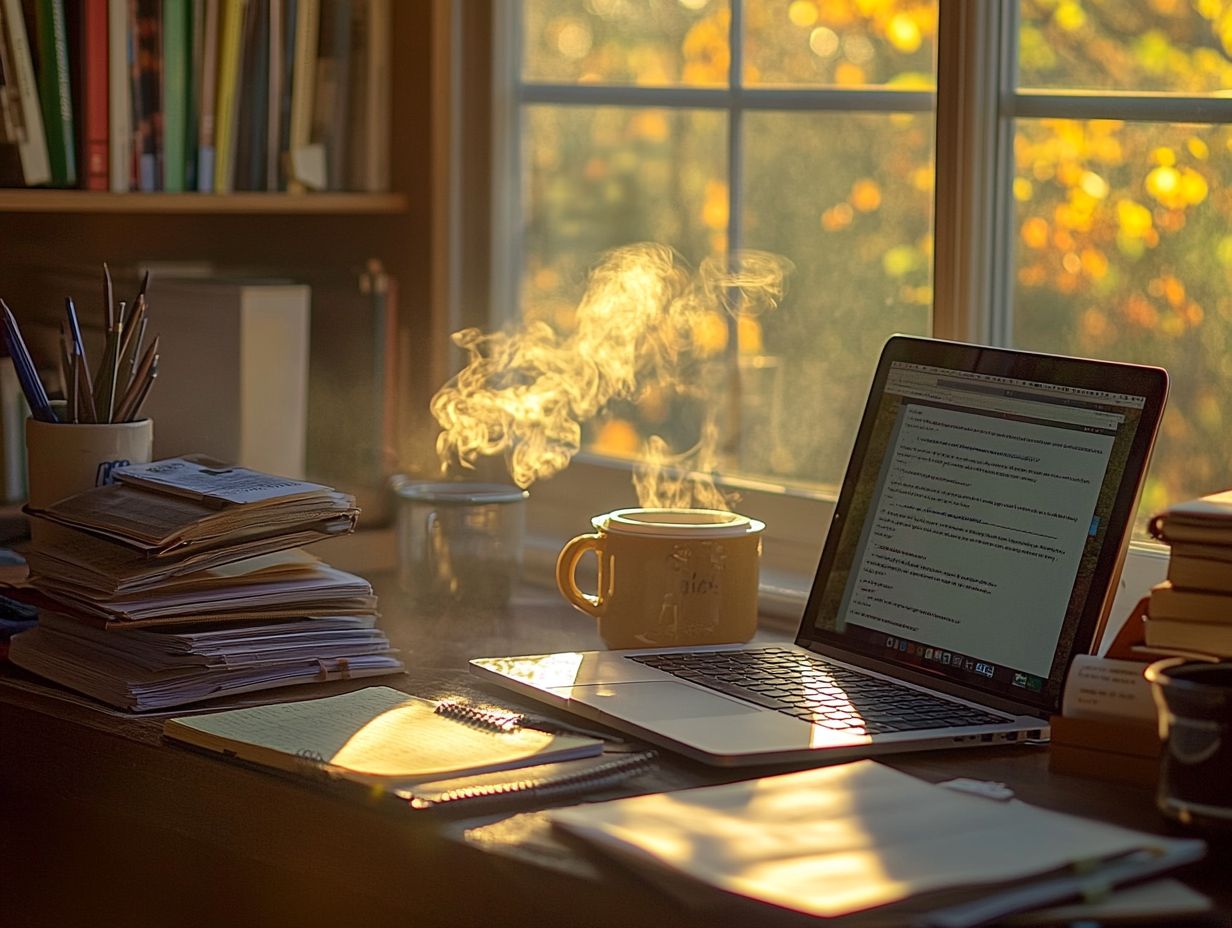
Copyright serves as your legal shield, granting you control over the use of your original creative works and ensuring that your intellectual property rights are upheld within the legal framework.
This protection is essential for nurturing creativity and innovation, offering you, whether you are an artist, writer, or musician, the reassurance to share your work without the looming threat of unauthorized use or reproduction.
For self-published authors, copyright not only gives you the power to license your books or artwork but also equips you to monetize your creations effectively.
Understanding your copyright rights now is critical to safeguard your creative future, especially in today’s digital landscape, where a wealth of content is just a click away. For effective strategies, consider these tips for copyright compliance in marketing.
It lays the groundwork for protecting your original ideas, promotes fair use, and fosters a culture of respect for creators’ rights.
What Are the Rights of Copyright Holders?
Copyright holders enjoy exclusive rights to their creations, allowing them to dictate how their works are reproduced, distributed, and performed in public. This exclusive control also gives them the power to take legal action against unauthorized use and copyright infringement.
These rights form a crucial framework in licensing agreements, giving creators the power to negotiate terms that guarantee fair compensation and recognition for their efforts.
By protecting against unauthorized duplication or distribution, these legal safeguards cultivate a thriving creative environment for authors. The ability to selectively license their works grants them the leverage to collaborate with businesses or platforms while preserving control over how their content is utilized.
This makes sure your unique ideas and hard work get the respect they deserve.
What Is the Duration of Copyright Protection?
The duration of copyright protection varies based on the type of creative work and the governing laws. Generally, it lasts your lifetime plus an additional 70 years before entering the public domain.
If you re the sole author of a work, you enjoy this extended protection. However, for works made for hire, the coverage lasts only 95 years from publication or 120 years from creation whichever comes first.
As a result, many classic films, songs, and books will eventually slip into the public domain once these terms expire. This allows you to adapt or reproduce them freely.
This transition has significant implications for authors like you. You strive to safeguard your original creations while contributing to cultural heritage when your works become widely accessible, inspiring future generations along the way.
What Are the Consequences of Copyright Infringement?
Copyright infringement can lead to serious consequences if you’re found in violation. This could include legal action from the copyright holder, hefty monetary damages, and even the potential loss of your exclusive rights to use that creative work.
The legal fallout doesn’t stop at fines. Courts may impose injunctions that can halt the distribution and use of any infringing material.
If you’re a copyright holder, knowing your rights is vital! It empowers you to take action when necessary. You have the power to initiate infringement actions, which may involve gathering evidence, sending cease-and-desist letters, or even pursuing litigation if it comes to that.
Taking these steps not only helps you assert your rights but also serves as a deterrent against future violations. This ensures the integrity and value of your original creations are preserved.
How Can Authors Protect Their Copyrighted Work Online?
To safeguard your copyrighted work online, implement copyright notices, consider online registration, and stay vigilant against infringement in the digital content landscape. Learning about the 5 things you didn’t know about copyright law can also provide valuable insights.
Beyond these essential steps, actively monitor your works across various platforms to spot any unauthorized use. Utilizing digital rights management tools can provide an additional layer of security, giving you the power to enforce your rights more effectively.
Grasping the importance of copyright notices is vital; they act as a legal warning and inform potential infringers about their responsibilities and the consequences of misusing your creative content.
By adopting these strategies, you can navigate the complexities of online publishing with increased confidence. For more detailed insights, check out 5 key considerations for copyright licensing. Take control now! Start implementing these strategies today to protect your creative works.
What Are the Common Misunderstandings About Copyright?
Common misunderstandings about copyright can lead to significant confusion regarding copyright law, particularly around concepts like fair use. You might misinterpret your rights and obligations as a creator.
Many individuals assume that fair use grants them unlimited freedom to use someone else’s work, overlooking the small differences between fair use and copyright violation. This lack of clarity can greatly impact authors and their creative pursuits.
Such misconceptions may even hold creators back from fully utilizing their own works. They fear misinterpreting their rights, ultimately stifling creativity and innovation.
It s crucial for you to grasp these key distinctions to safeguard both your intellectual property and that of others. This fosters a more collaborative and vibrant creative environment.
Frequently Asked Questions
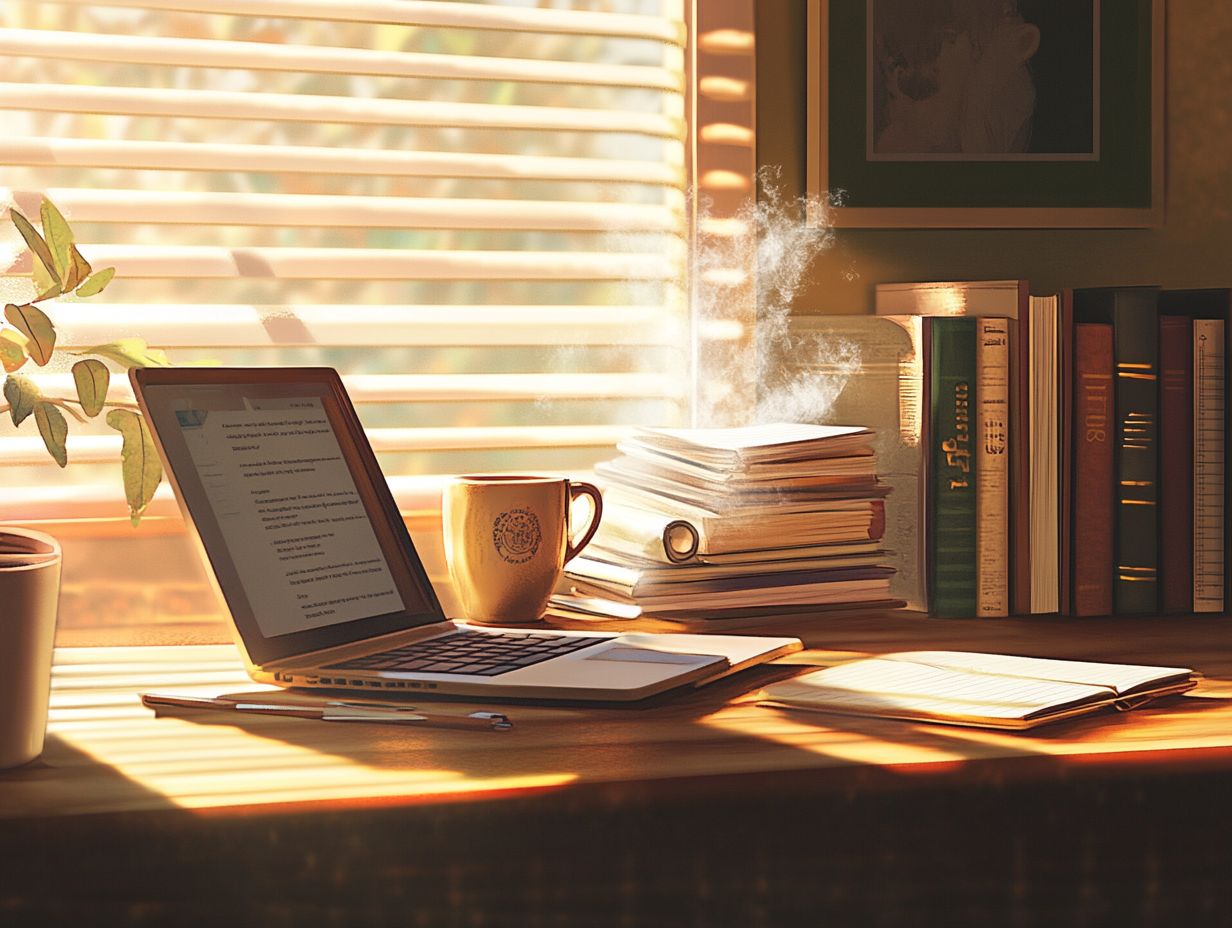
Can all original written works be protected under copyright law?
Yes, all original written works, regardless of their quality or purpose, are automatically protected by copyright law as soon as they are created in a tangible form.
Copyright gives the author the exclusive rights to reproduce, distribute, publicly display, and create new creations that are based on their original work. It also allows them to control how their work is used and monetized.
What is the duration of copyright protection for written works?
The duration of copyright protection for written works is typically the life of the author plus 70 years after their death. After this time period, the work enters the public domain and can be used freely by anyone.
Do I have to register my work with the copyright office?
Copyright protection is automatic! It does not require registration. Registering your work can provide extra legal protections and make it easier to take action against infringement.
Can copyright be transferred or sold?
Yes, you can transfer or sell copyright through a written contract. The original author still has certain moral rights, like being credited as the creator.
What should I do if I suspect someone has infringed upon my copyrighted work?
If you think someone is copying your work, gather your evidence and talk to a lawyer. You can send a cease and desist letter and consider legal action if needed.
